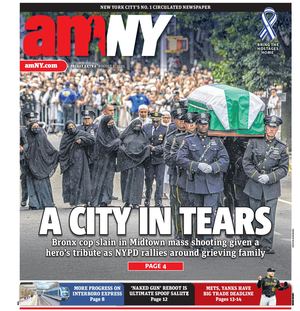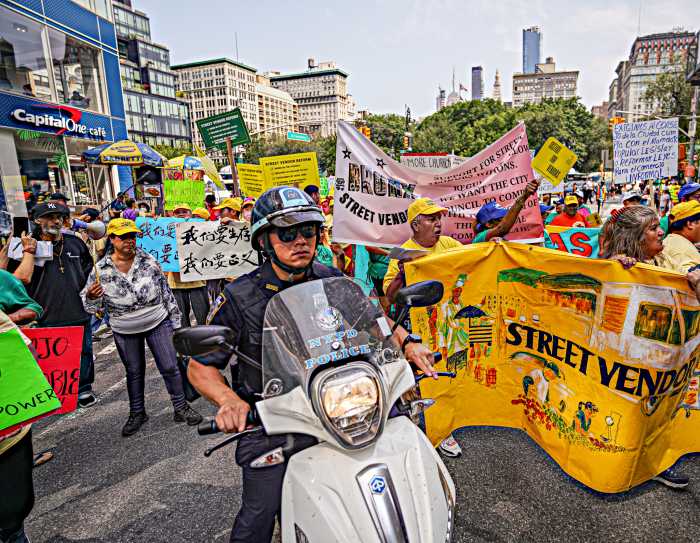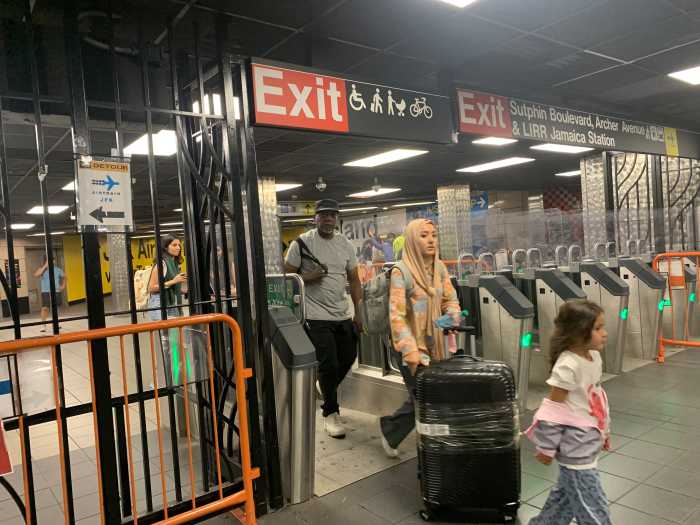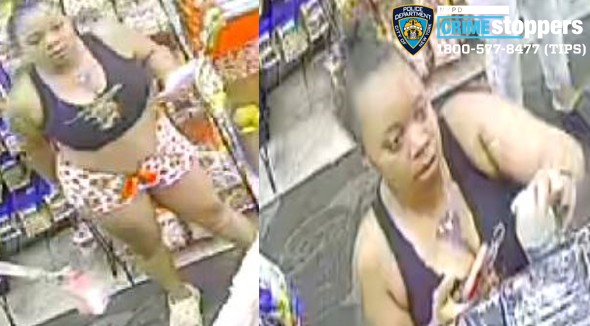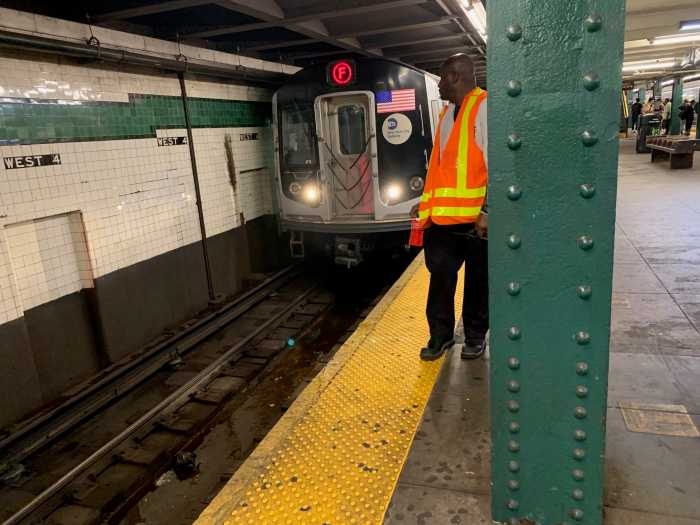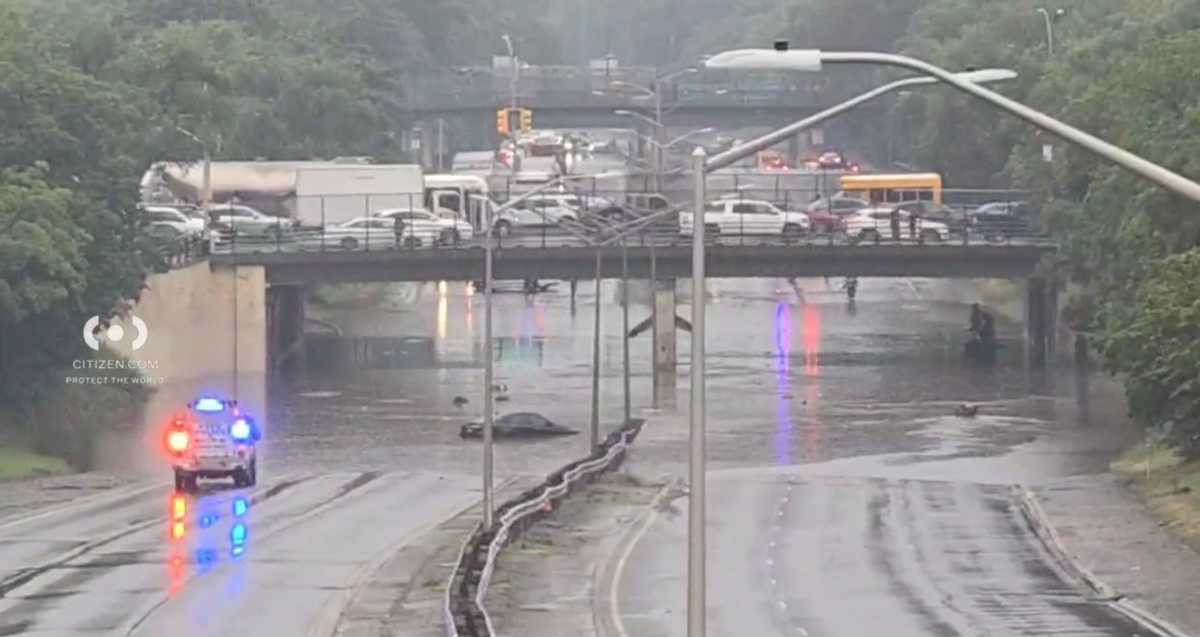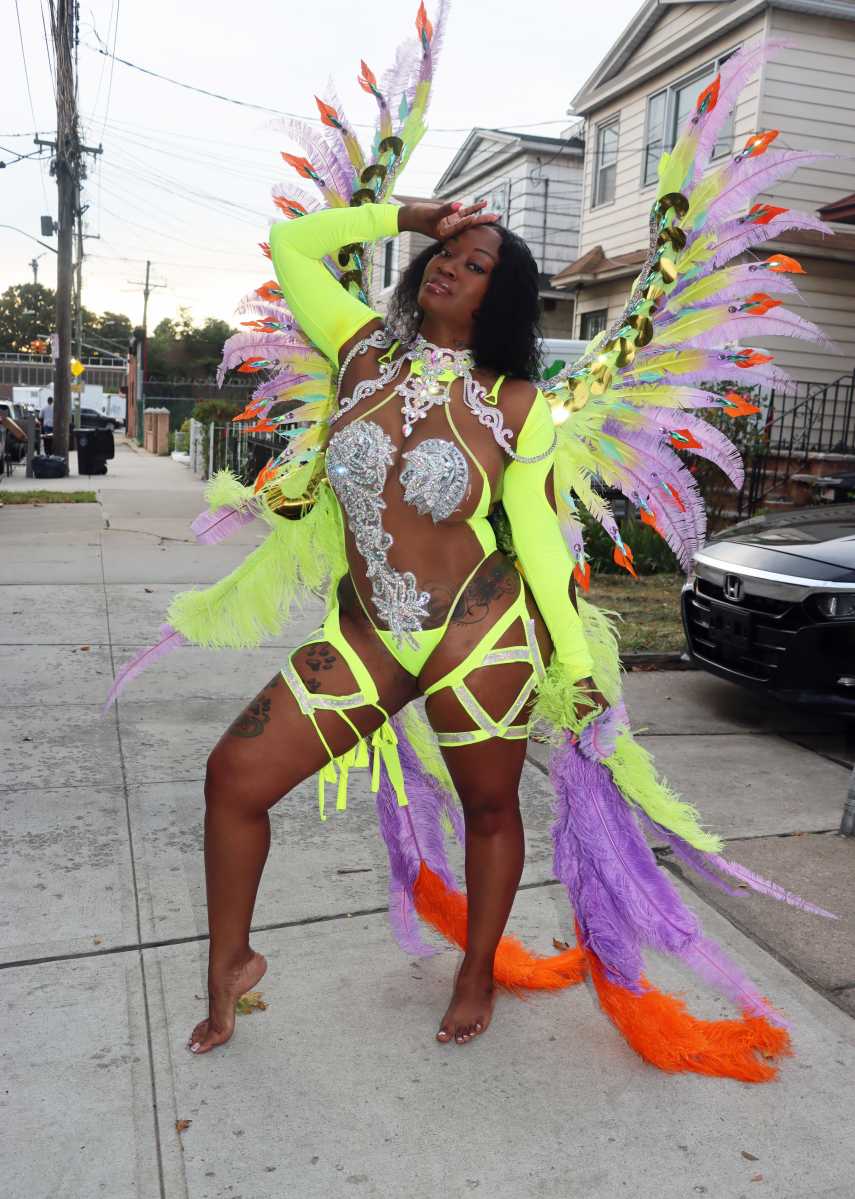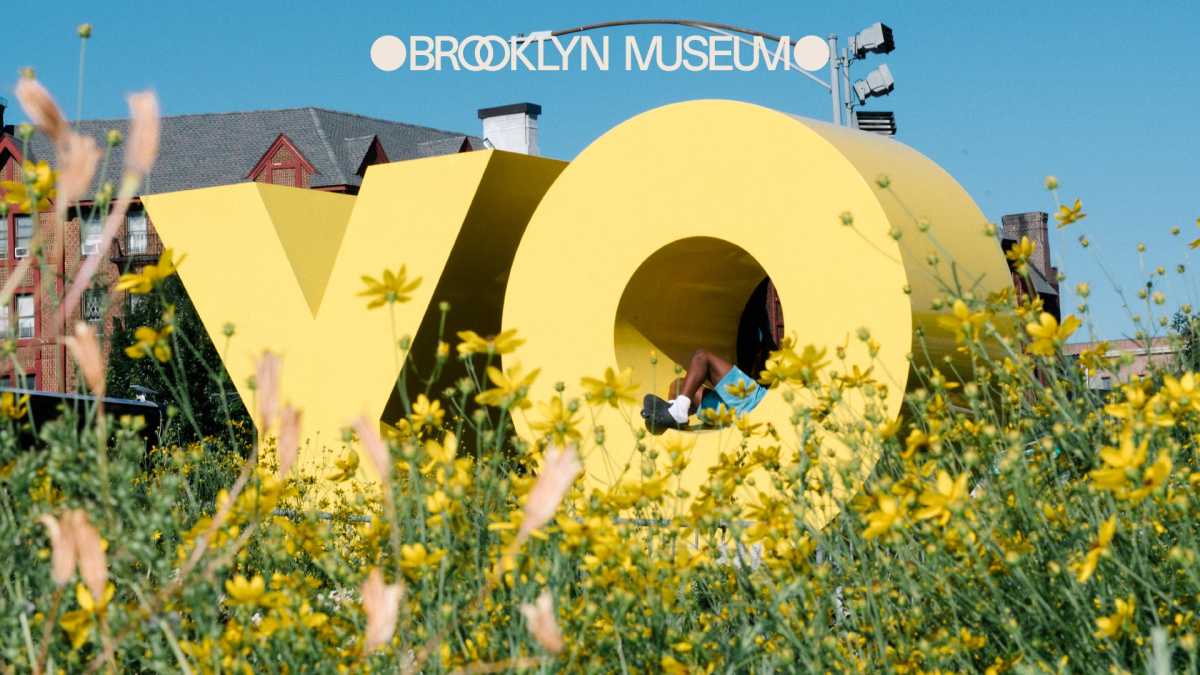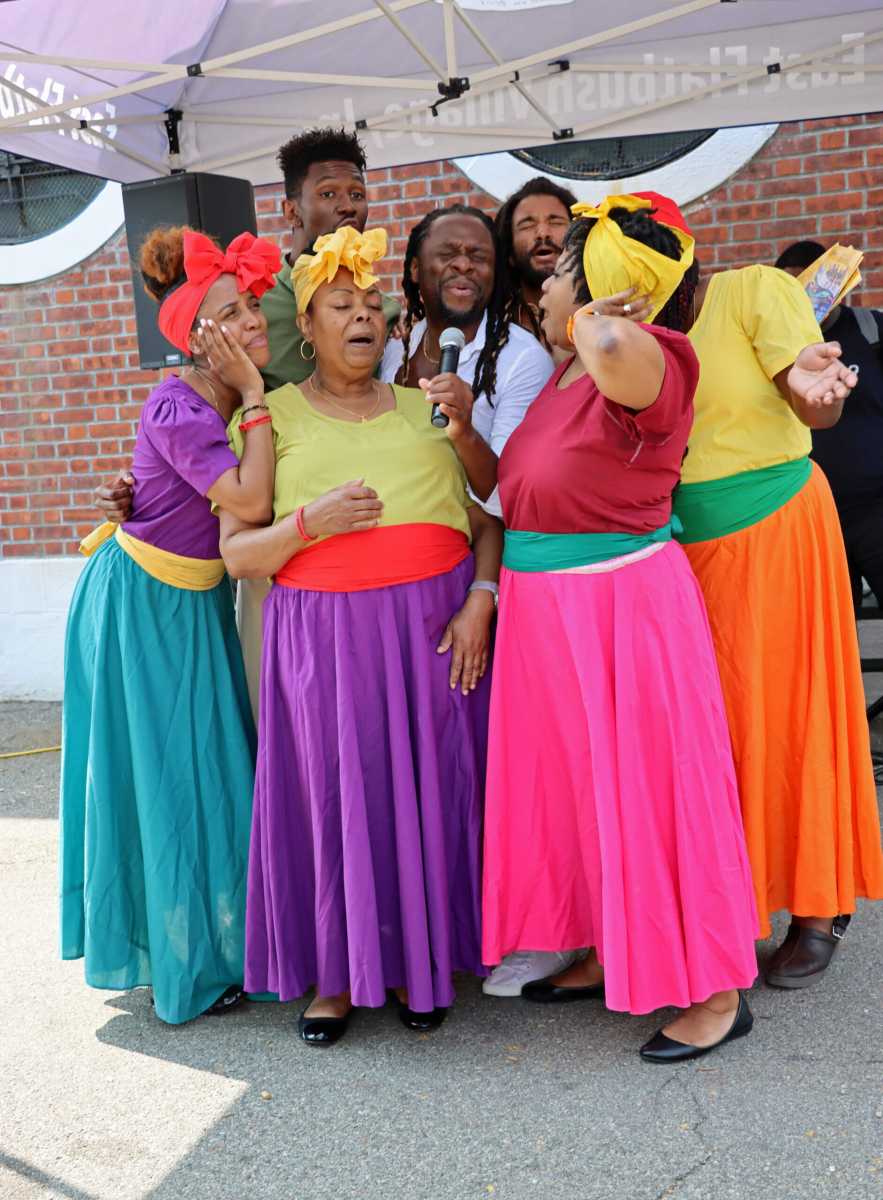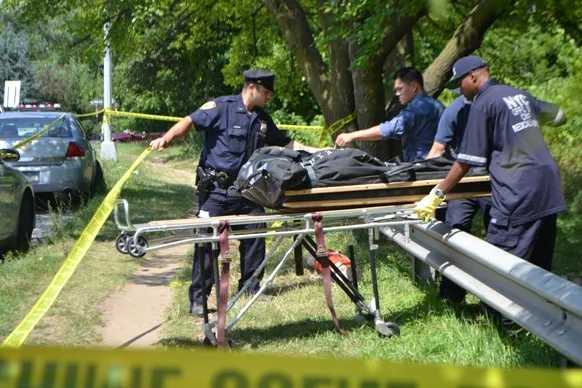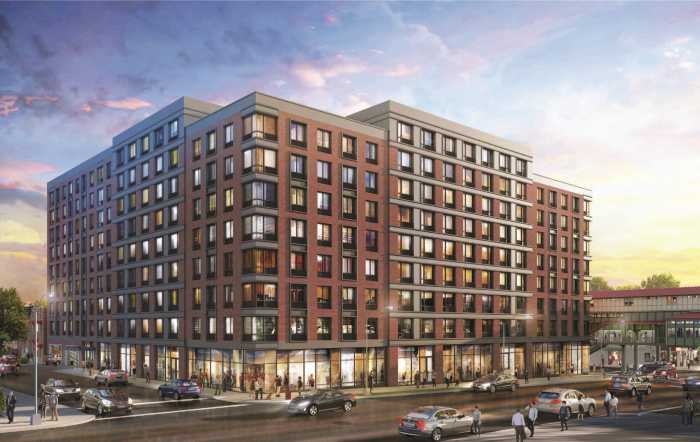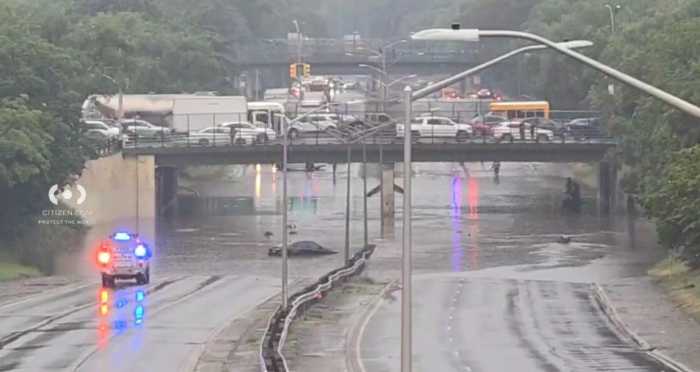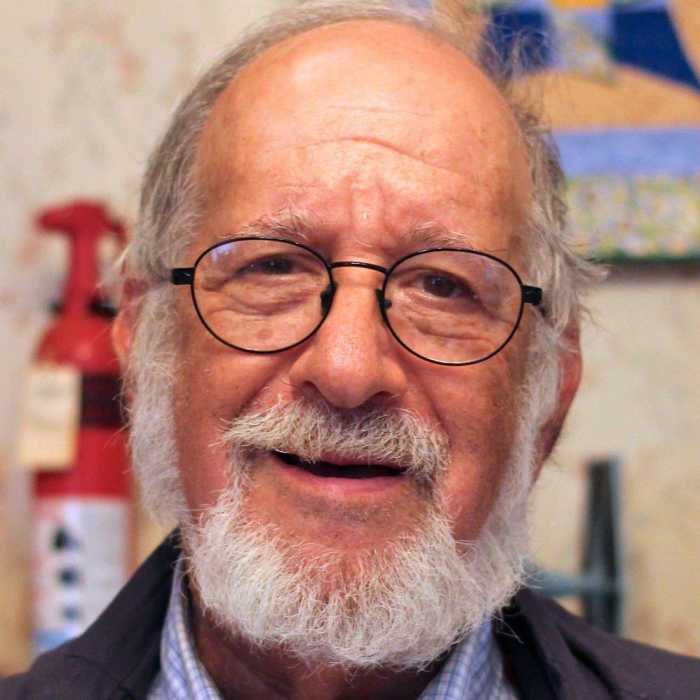After hitching a car ride from Gracie Mansion to his favorite Park Slope gym, Mayor Bill de Blasio took an R train to City Hall on Thursday morning to press for more transportation funding.
With Sen. Chuck Schumer and other officials in tow, following a morning coffee, the two pols chatted up subway passengers, posed for photos, and handed out leaflets pressing Congress to increase transportation funding.
“Can you help us out on this? We need your voice heard,” he told commuters, according to the pool report.
Arriving to the R station at City Hall from the 4th Avenue-9th Street stop, he and Schumer called on federal lawmakers to put more money into the fund that pays for mass transit and highways. The fund consists of revenue from a gas tax at a time of greater fuel efficiency and low oil prices; it will run out of money May 31 unless Congress acts.
“This country has been going backwards in terms of investment in transportation infrastructure,” de Blasio said. “The numbers remain flat while the need has gotten greater and greater and our infrastructure gets older and older.”
The mayor took the subway ride to highlight the bipartisan group of about 60 mayors across the U.S. who had joined his call for more federal transportation aid to improve the way people travel to work. He said he recently took a work-related subway ride without any cameras around; an aide said he took the Lexington Avenue line to Gracie Mansion from downtown on the afternoon of April 3.
Schumer, meanwhile, cautioned that even if funding stays at current levels, “the needs of the nation will not be met,” Schumer said.
“We need new sources, we need new dollars,” he added.
The city’s transit infrastructure has been buckling under record ridership and harsh weather, with service noticeably deteriorating.
The MTA has a $32 billion spending plan for the aging transit system, with $22 billion of that going to new subway cars and buses, better tracks, modern signal equipment to run more trains, and repairing dilapidated stations. More than $15 billion of that plan is unfunded.
The MTA assumes it will get the usual $6.2 billion in federal money, and a 25% bump in funding from the city, totaling $625 million over five years.
But whether the city makes good on that money remains to be seen.
“The MTA’s made its assumption,” de Blasio said. “We will have our budget within a month.”
To reach the MTA’s $15 billion goal, transit experts have said new sources of revenue are needed; different plans have been floated, among them a congestion pricing and bridge toll plan, known as Move NY. De Blasio and Schumer said they was unfamiliar with the latest proposal, though he said he would eventually review it.
Leaders in the state, which controls the MTA, recently passed a budget that only provides $1 billion to the plan, $250 million of which is already earmarked for new Metro-North stations in the Bronx.
De Blasio wanted the state to “come up with bigger solutions” so the MTA can get the funding it needs. (Beth DeFalco, a spokeswoman for Gov. Andrew Cuomo said work on the MTA capital plan will continue with stakeholders.)
“The governor and the legislature have to focus on resolving the MTA issue,” de Blasio said. “We certainly want to work with them but it can’t be ignored.”
